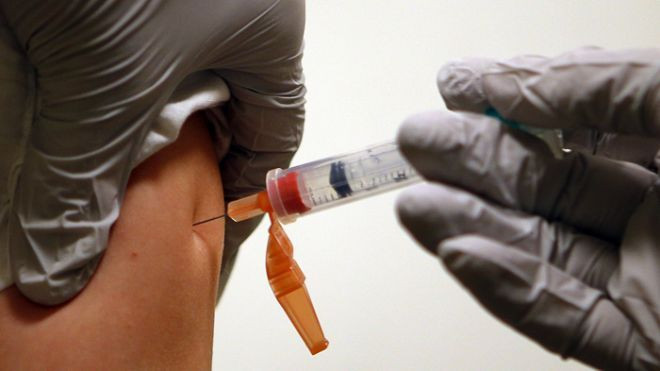Alternative Breast Cancer Treatment, Cesium Chloride, Kills Colorado Woman After At-Home Injection

People considering alternative medicine as a form of cancer treatment should consult a doctor or healthcare center before following through with a new supplement regimen. A 61-year-old woman in Colorado died after injecting herself with cesium chloride, a supplement that is often used as an alternative treatment for breast cancer.
"This was the first time she had taken an injection but not long after, she started to feel sick," medical toxicologist who treated the woman at the Rocky Mountain Poison and Drug Center in Denver, Dr. Daniel Sessions, told ABC News. "After a few hours, she went into cardiac arrest in front of her family and was rushed to the hospital."
What is cesium chloride?
According to the American Cancer Society, cesium is a naturally-occurring element of alkali metals that bears a similar chemical makeup as lithium, sodium, and potassium. Doctors warn that cesium chloride is not the same as radioactive cesium, an integral part of some radiation therapies. Supporters of cesium chloride as a form of cancer treatment claim this supplement can help raise the pH level of tumor cells, which are usually low or acidic.
Animals that were given cesium chloride treatments over a prolonged period during clinical testing eventually suffered from severe blood and neuromuscular disorders, and, in some cases, even death. Oral and intravenous (IV) use of cesium chloride has been tied to seizures, loss of consciousness, and life-threatening heart rhythm complications. There is currently no research to support the claim that cesium chloride can either raise or lower the pH levels of cells.
Cesium chloride for breast cancer treatment
Approximately a year before her death, the unidentified woman refused a biopsy after her doctor located a lump in her breast they considered cancerous. She reportedly started taking cesium chloride tablets after seeking the advice of a nutritionist. With help from her husband, the woman mixed crushed cesium chloride tablets with water and injected it into the cancerous lump.
One night in 2011, the woman began to complain about a headache and nausea a couple of hours after injecting herself with the cesium chloride cocktail. Around 20 hours after the injection, the woman went into cardiac arrest at her home and was quickly rushed to the hospital. Following cardiac life support care and a regimen of antiarrhythmic medications, the woman slipped into a vegetative state that she would never recover from. Less than a week after administering the fatal injection, the woman died at her home.
Subsequent blood tests would reveal a cesium level of 100,000 μg/L, much higher than any recommendation would give. Doctors also discovered the woman’s breast cancer had spread to her lymph nodes, significantly increasing her chances of dying. Even though the woman faced prior health concerns, and her dosage amount exceeded any recommendation, this salt form of the element cesium can have a significant effect on cardiovascular risk.
There is currently no scientific evidence that supports cesium chloride as an effective treatment for any type of cancer. The National Center for Complementary and Alternative Medicine (NCCAM) suggests that anyone considering an alternative therapy approach to cancer treatment should first seek the advice of a physician to go over all possible options.
Published by Medicaldaily.com



























